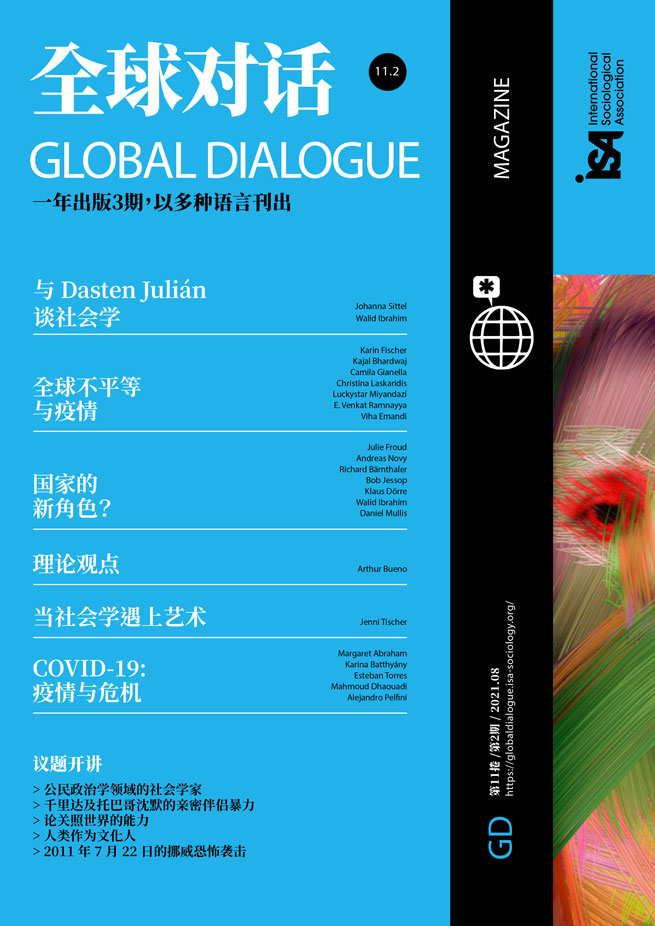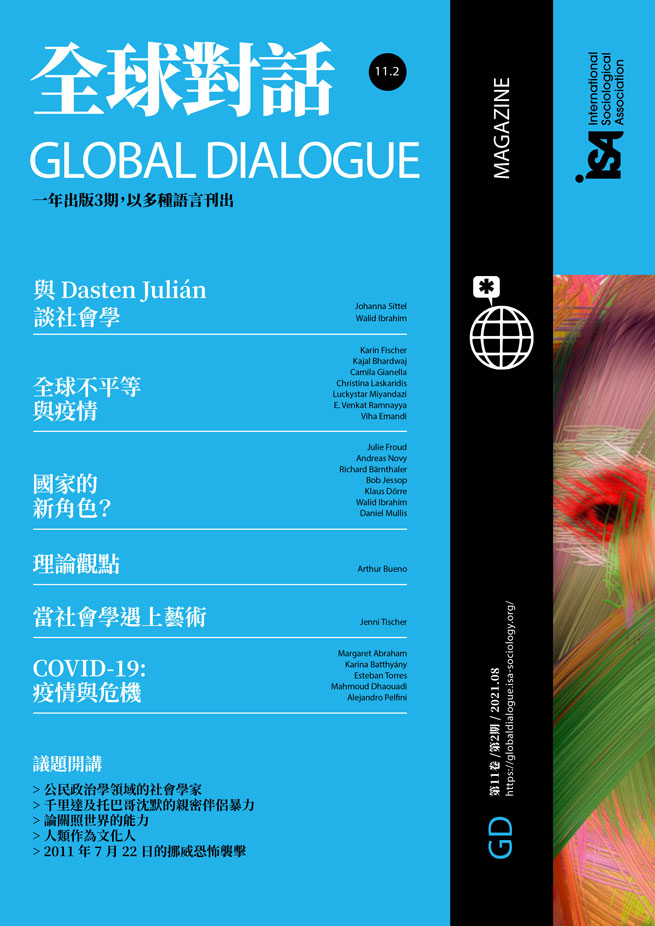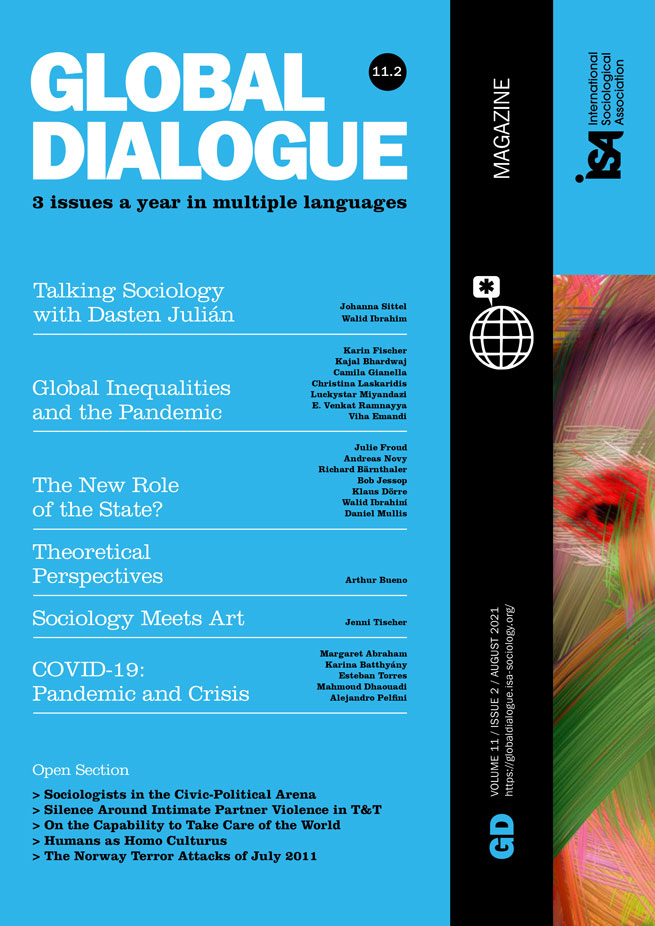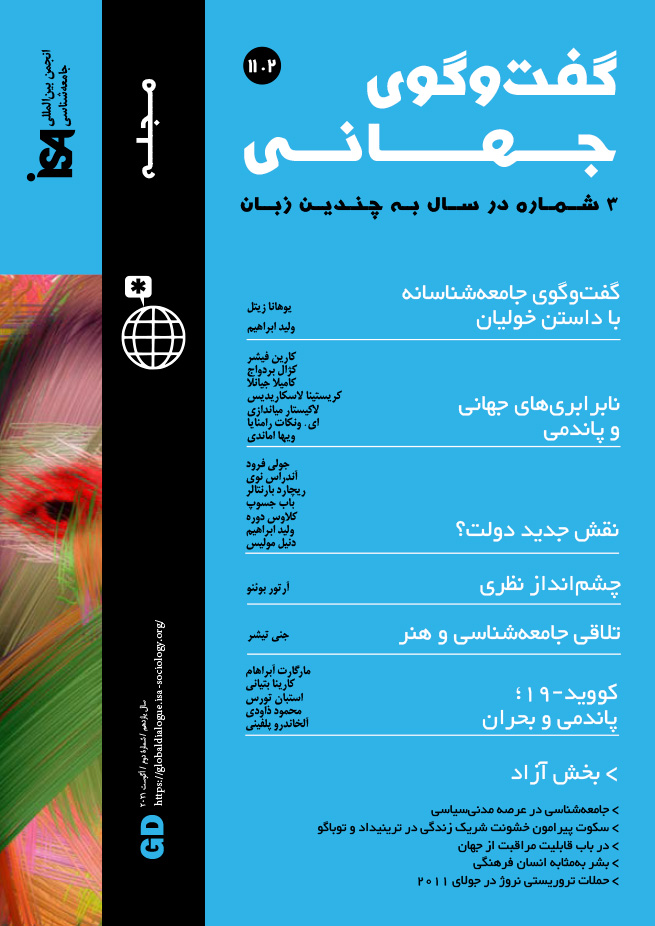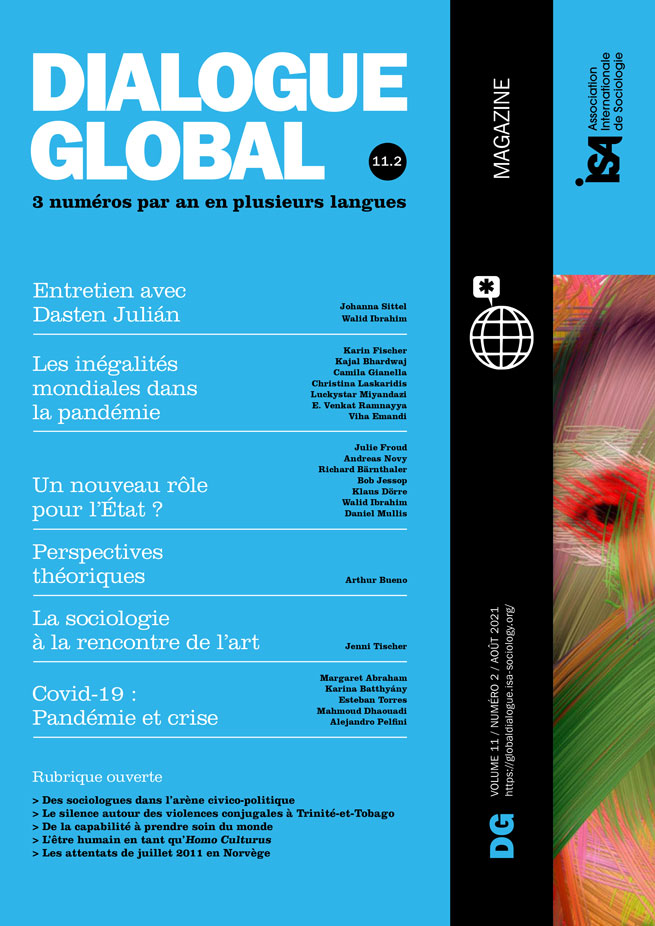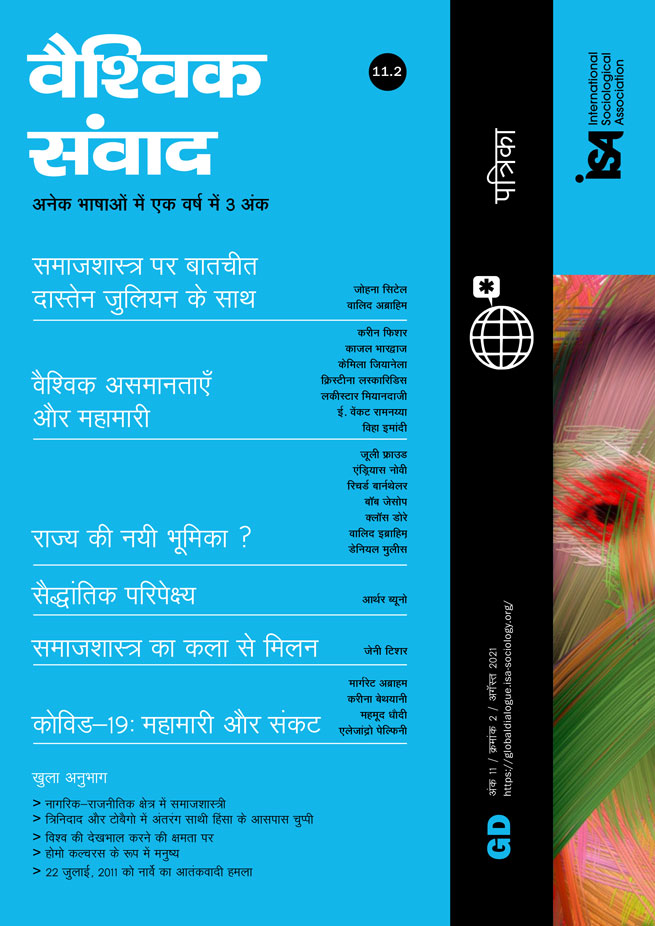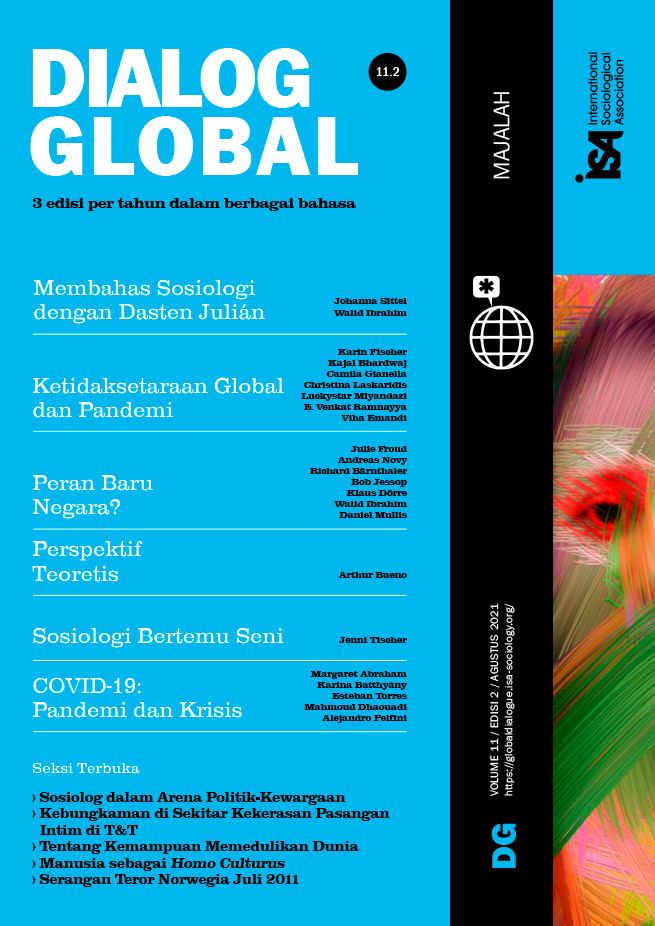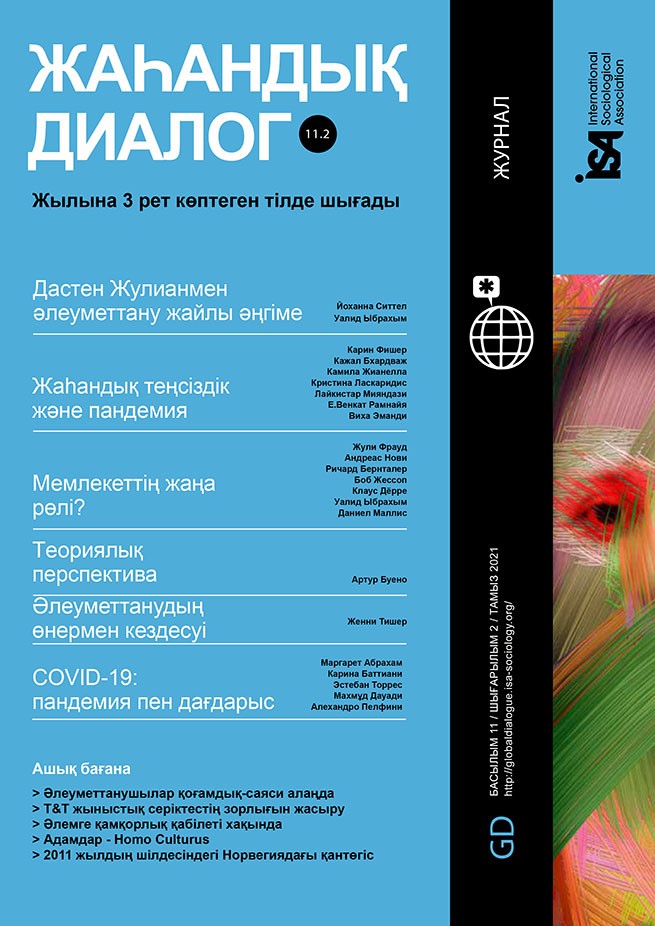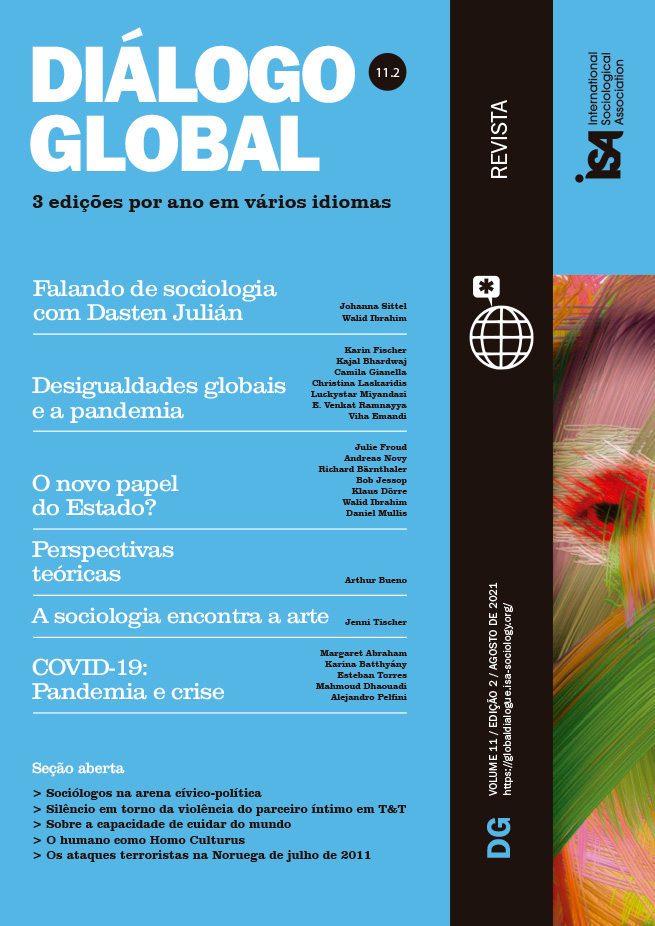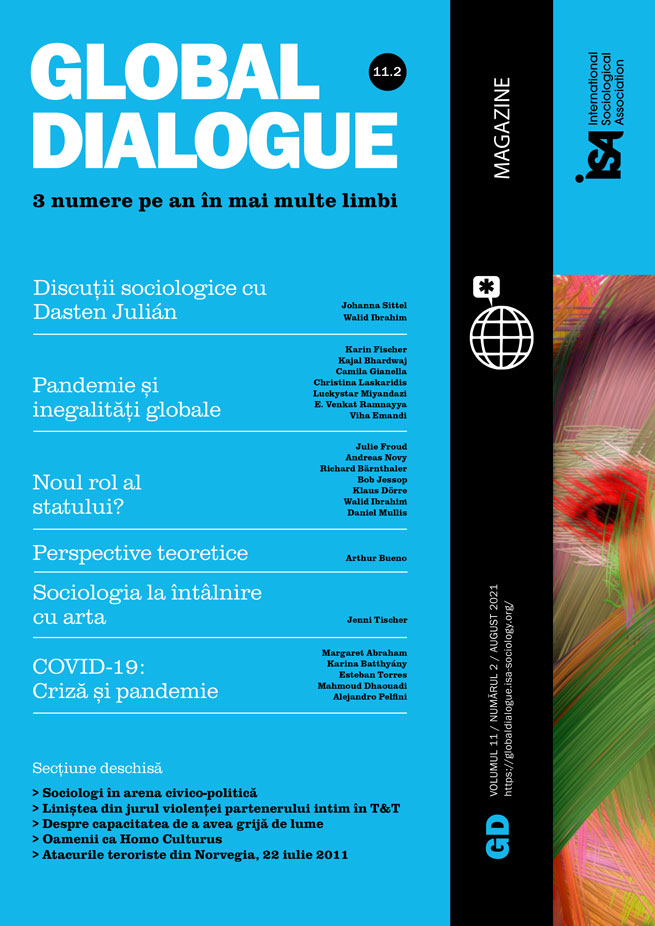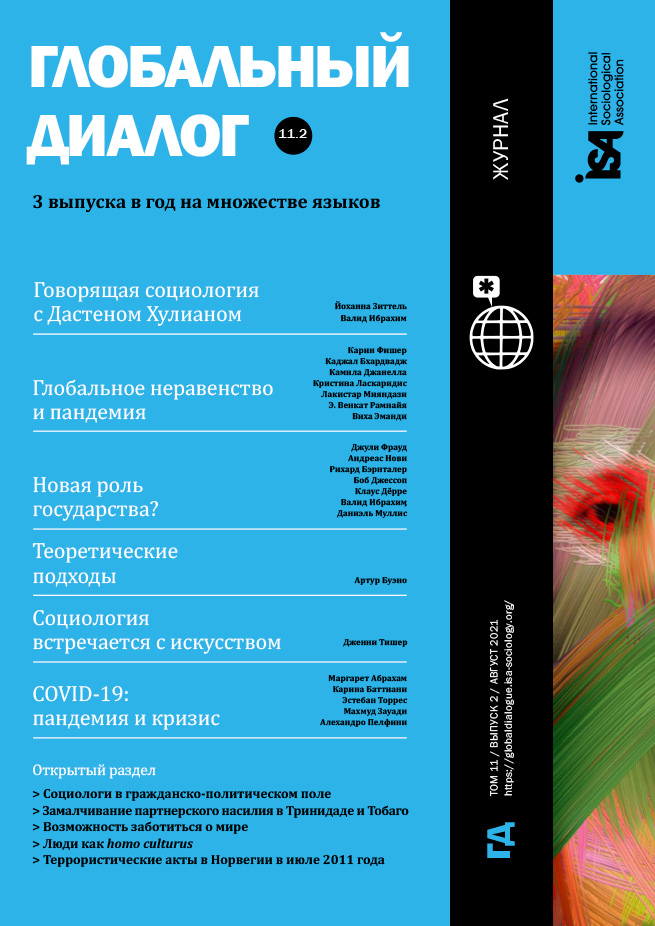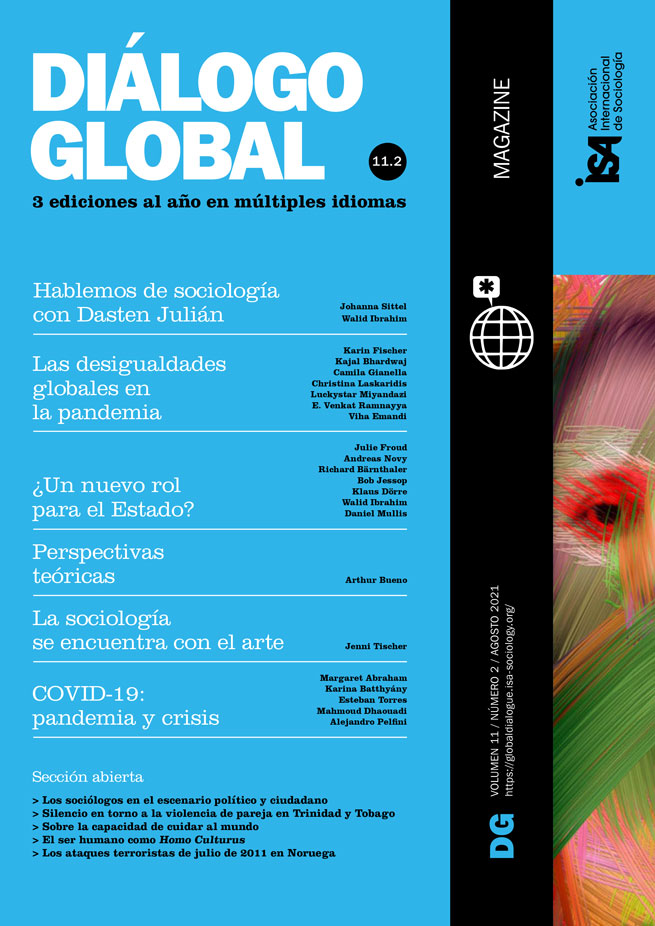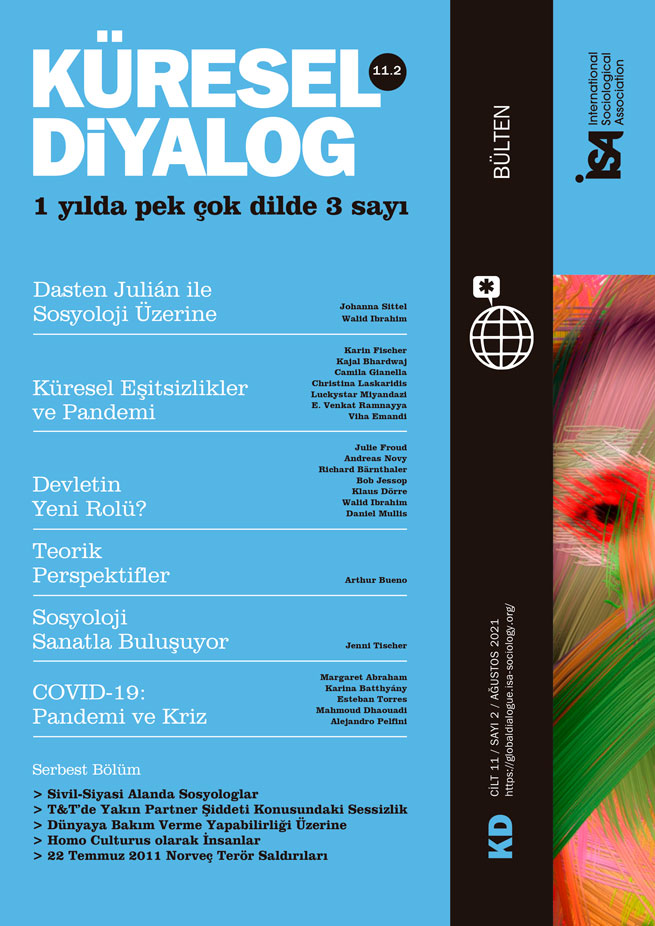The COVID-19 Crisis: New Sociologies and Feminisms

June 25, 2021
For the social sciences, the main novelty that the mega-crisis linked to the expansion of COVID-19 has produced is the recognition of the impossibility of ignoring that we live in territorial societies that are increasingly globally interdependent. If, before 2020, social studies were still able to develop acceptable justifications for dispensing with a global framework of observation, this is no longer the case. The pandemic started a process of irreversible attention, which will sooner or later affect all research objects, and from which there is no turning back.
It is no longer possible to omit the existence of a global society without falling into serious anachronisms. If, in the times of maritime navigation, the conquest of America initiated material globalization, it is likely that the blows dealt by the representations of COVID-19 on our digital screens will once and for all anchor globalization as intellectual common sense. Thus, rather than expanding the process of material globalization, the collective processing of the avatars of COVID-19 is expanding the process of mental globalization. We are not witnessing the decline of micro-social sensibilities and subjective singularizations, but rather a vertical, abrupt, unthinkable end to a long process of ignorance and historical denial of the gravitational forces of world dynamics on societies.
The mechanics of social science knowledge production
The mechanics of how agendas of knowledge production are transformed are not completely unknown. Social change usually precipitates itself along two axioms. First, historical events and processes determine the guidelines of knowledge production in the social sciences, and not vice versa. The transmission of COVID-19 emerges as an “external” and objective event that fully impacts the social-scientific sphere. Four decades earlier, another event “external” to the regional field, such as the start of the extermination machinery of the military dictatorships in South America, decomposed the autochthonous bases of sociology, interrupting the globalization impulses that it had been unfolding at high speed since the 1960s.
Secondly, common sense is ahead of science, only to be later devoured by it. Here appears this new perception of global belonging in an embryonic state, without yet being able to recode itself with new theoretical and analytical instruments as well as practical action. If we decide to take the phenomenon of COVID-19 seriously, if we immerse ourselves in it with full attention, we should let it sweep over us completely. As social scientists we are usually willing to assume with a certain tranquility the premise that truth is provisional, but not the graver practical consequence that such an affirmation brings: that every perspective and idea created needs to be systematically destroyed or needs to destroy itself in order to be recreated again. It is the only method so far to avoid living comfortably in the falsehood of the known.
New theories of world society
Just as a world society is not the product of a single location, a theory of world society cannot be either. A world society could resemble a higher order network, which differentiates, integrates, and relates the whole of the national, regional, and global social spheres. We could assume that each point of social location in the world is a unique condensation, direct and indirect, of these three interacting spheres. Germany’s global society is definitely not the same as those of Argentina, Uruguay, Mexico, Chile, or China. But all of them, on the basis of their interactions with each other, make up world society. Nor is there such a thing as a single patriarchal system or globalized capitalism: what exists are concrete patriarchal modes, as well as different dynamics of subjection between central and peripheral capitalisms in world society.
The recognition of this principle of irreducible differentiation does not eliminate the probability of discovering universal regularities, but it does minimize the probability that structural relations and processes can assume identical modalities in different locations. Recognizing that the primary substratum of society is worldly implies that the materiality of the social sciences and sociology are also worldly. Since the 1960s, Latin American sociology has ceased to be “the Other” of sociology, or its simple alienated reproduction, to become an active current of world sociology. In this sense, we assume that the theory of world society that we need to construct demands the emerging knowledge of the total plexus of the intervening locations, balancing one’s own point of view on this differentiated totality with the point of view from each other’s location, and activating from this extended practice the necessary anthropological exercise of trying to “put oneself in the place of the Other.” From this preliminary assumption, the world would not be conquered by gathering all the existing knowledge, but by creating a new global dialogue, capable of producing new syntheses from the world views produced and projected from each point of historical location.
The world crisis of COVID-19 gives us the opportunity to advance in the creation of new theories of world society for all sociologies. The new global visions would allow us to face in better terms, from each historical location, the growing globalization of social, gender, and economic inequalities. In the case of critical feminist perspectives, it is quite clear how a greater globalization of their visions can enhance their programs of structural social transformation. This would be a process of intellectual adjustment to the material deployment of the political movement, which is essentially global.
With modern critical sociology the question is more complicated. Further globalization of its perspectives does not necessarily lead to the development of a socially engaged science. Still less does it lead to a potentially transformative sociology. It is essential to further problematize the notion of political commitment in modern critical sociology in order to understand why it has not been producing extra-academic political effects for decades. We believe it is necessary to place such practices at the service of a general policy of social change. The development of a modern critical sociology, politically engaged, demands some kind of novel connection with the politics of movements and national parties. It is a matter of leaving an academic space of comfort, in the same way that sociological currents did until the 1970s - at least in Latin America - and that feminist critical thought does today. The approach to national politics demands the integration of a principle of reality that constitutes the best antidote against the proto-radicalism of critique as an end in itself and against a maximalist utopianism that cannot concretely explain how we might move towards a better society for all. In turn, this political transformation of modern critical sociology is a necessary condition for entering into a powerful and constructive dialogue with feminism.
It will depend on us, on our capacity to build an intellectual, scientific, and political community, to put in place collective initiatives with sufficient power to precipitate a structural change that can alter the current course of our societies in this disconcerting historical time.
Karina Batthyány, CLACSO Executive Secretary, Uruguay <kbatthyany@clacso.edu.ar>
Esteban Torres, Universidad Nacional de Córdoba-CONICET, Argentina <esteban.torres@unc.edu.ar>



